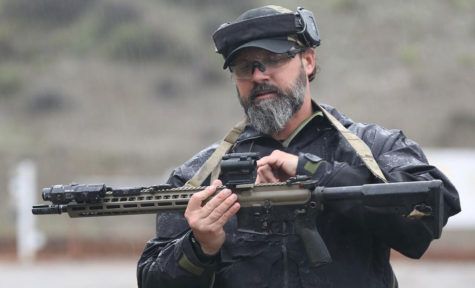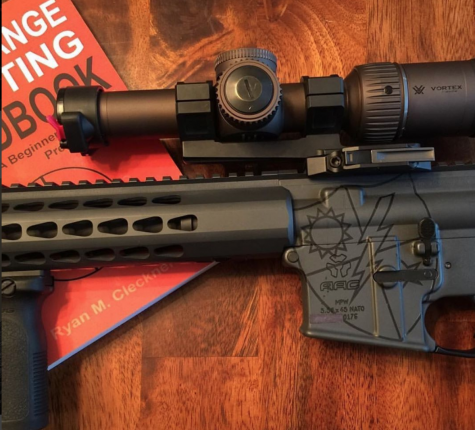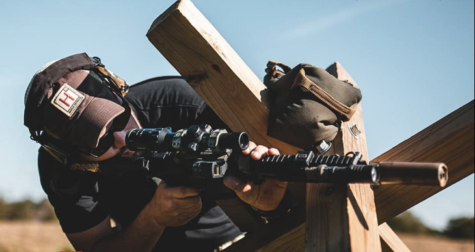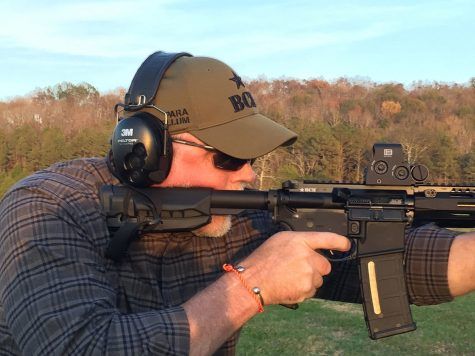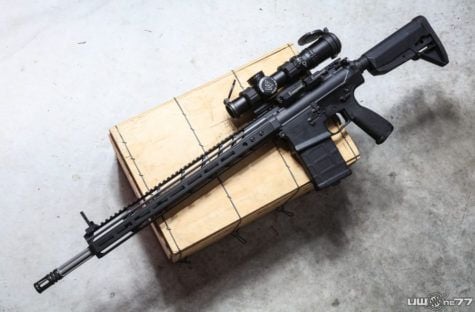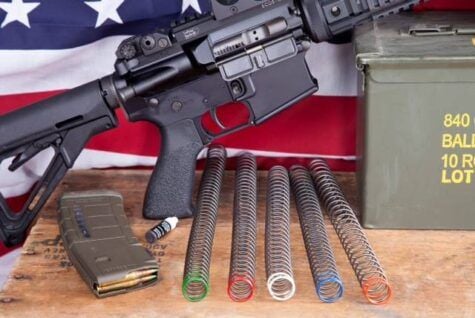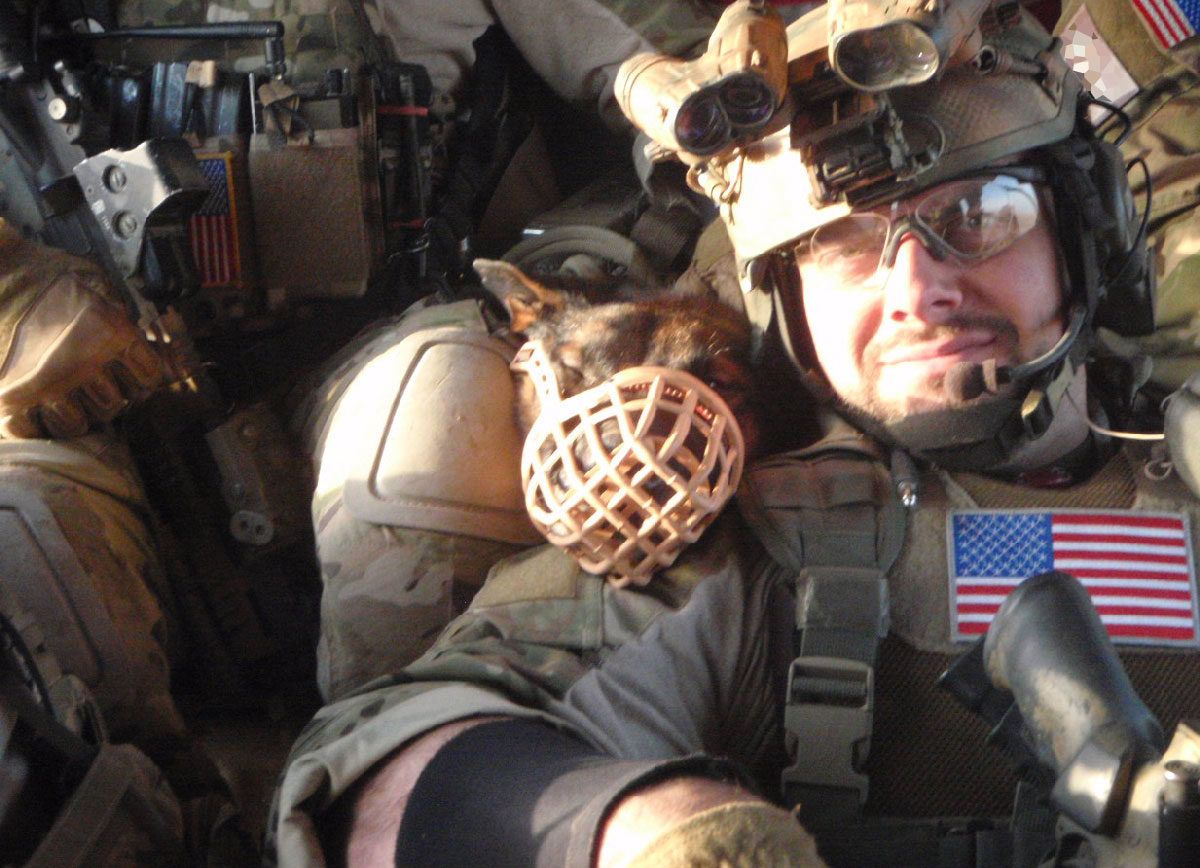
(Editor’s Note – We have linked the second and third parts of this interview here, where chuck talks about his experiences with the H&K 416, and his opinion on 5.56 vs. 7.62 NATO…what follows below is part 1.)
Chuck Pressburg of
We recently reached out to Chuck to learn more about his consulting company,
Q: Chuck, it is a tremedous honor to speak with you. To start, I’d love to learn more about your experience in the Army, and how that eventually lead to you starting Presscheck Consulting.
Chuck Pressburg: I joined the Army on a delayed entry program back in 1989 just before the invasion of Panama, and then departed from Basic the following summer after I graduated. I did 26 and a half years
Q: Your journey is rather unique and well worth telling. Can you talk about your start as a Ranger?
Chuck Pressburg: I had signed up on a Ranger contract as an infantryman after doing my research and talking to various recruiters. I decided specifically not to go in the Navy and try to be a SEAL or go the Marine route, just because there were not enough guarantees that if performed, I was going to get my chance. There were not these defined pipelines that the special operations community enjoys now…
Back then, you could not enlist to become a Navy SEAL. There was no pipeline, there was no contract…there was no guarantee that you were going to get to assess and then go to BUDS. You had to volunteer for it, and hope that there was a recruiter that came by and took your PFT or whatever and gave you your contract to go to BUDS. Otherwise, you were chipping grey paint off of a destroyer or you were working on the guidance system of a torpedo.
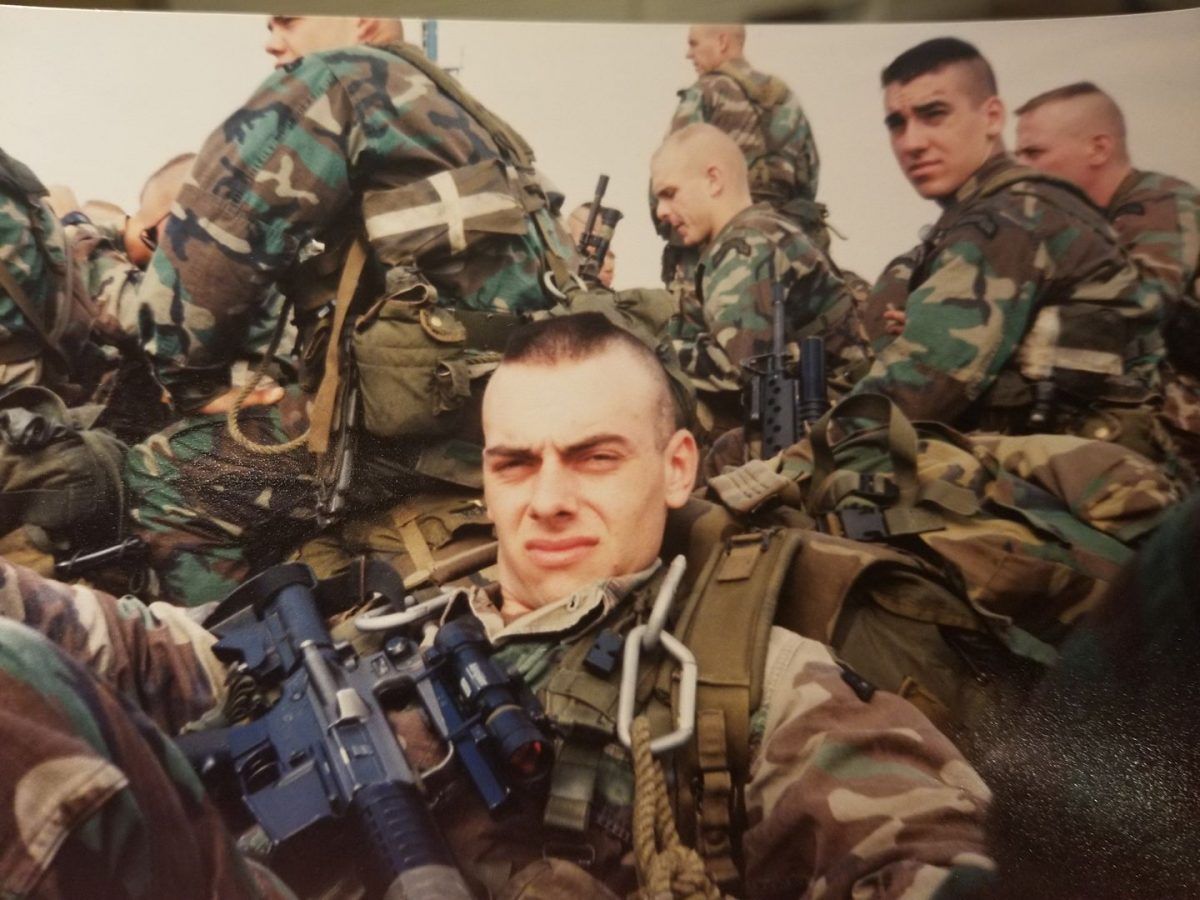
Q: That’s just an incredible leap of faith…to trust that everything aligns, is it not?
Chuck Pressburg: That lack of determining my own destiny was way, way, way too risky for me. And honestly, the
So the 75th Ranger Regiment had a pipeline program with guaranteed contracts. They were not plentiful…but they were out there. If you waited and you worked it, you could get down to MEPS and they would hand you a piece of paper that said as long as you pass every test and everything that they ask you to do, they will assign you to 75th Ranger Regiment.
So, I joined the Army on a Ranger contract and ended up going to 1st Ranger Battalion. I served in the Ranger regiment in 1st Bat, 3rd Bat…
Q: Can you talk about your beginnings as an instructor?
Chuck Pressburg: I was an instructor at the Ranger Indoctrination Program, now the Ranger Assessment Selection Program.
So, I vetted young guys coming to the Ranger Regiment from Airborne school. I also taught the pre-Ranger course preparing guys that were assigned to the Regiment to attend the U.S. Army Leadership School, called Ranger School.
I did about 10 years in two different Ranger Battalions…I took a break in there, went to the 82nd for two years, where I was a Squad Leader, as well as Sniper Section Leader. I had gone to Sniper School while I was in the Rangers, and I took over Sniper Section the second year that I was in the Division.
Q: You were involved very early on in the Global War on Terror…Can you give our readers an overview of how you were involved?
Chuck Pressburg: I came back to 1st Ranger Battalion and I did a couple more years there, to include the initial combat deployments after 9/11. I was boots-on-the-ground in Afghanistan in 2001, just months after the Towers fell.
I was Platoon Sergeant of one of the three platoons from 1st Ranger Battalion that relieved 3rd Ranger Battalion…the guys that jumped into Objective Rhino, that
I did a second rotation over to Afghanistan, then did Platoon Sergeant time. They were looking at swapping me out and getting a new Platoon Sergeant in there, so I prepared the platoon for the invasion of Iraq and then handed the platoon over to a new Platoon Sergeant three weeks before they deployed from home station and went to their forward staging area for the invasion of Iraq.
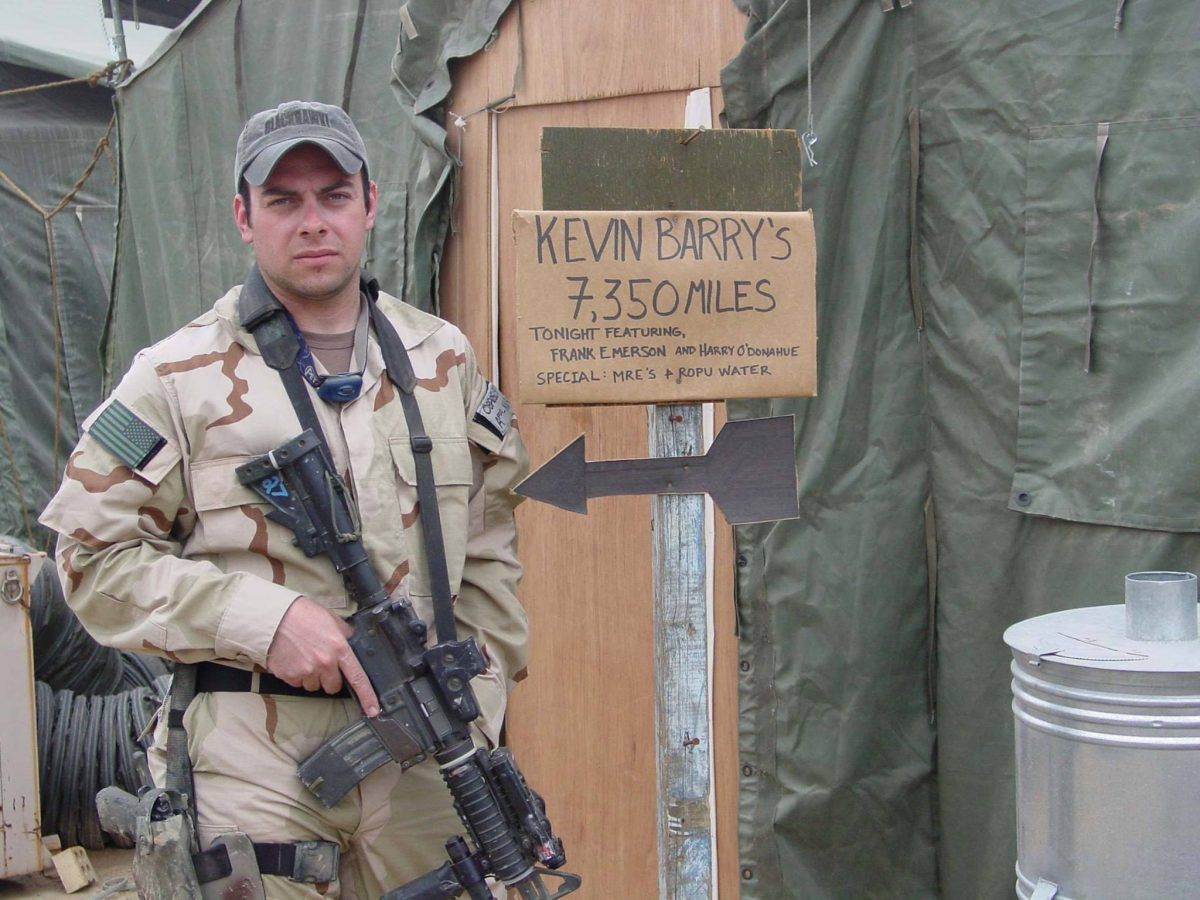
Q: You’ve been Platoon Sergeant and an instructor at the highest level…but then you dove headfirst into the science & technology side of things. Is that correct?
Chuck Pressburg: I went to Army Special Operations Headquarters (USASOC) at Fort Bragg, where I worked in a science & technology, research & development capacity, called G-8, which is the force provider for equipment for Army Special Operations Command. The Colonel in the G-8 shop manages a portfolio of just under a billion dollars annually. All SOF, peculiar equipment for the Army force that is not done on some sort of joint program out of Tampa, but is Army-specific, is managed by the G-8 shop.
I had been the Force Modernization NCO in the Rangers. I had been “R&D guy” for my Ranger Batallion while I was waiting for a platoon after I had made the E7 list before platoon had become open. So, I was connected with the industry, academia, battle labs, Picatinny Arsenal…all these facilities where they test guns and gear.
That started getting me into some classified programs. I was able to upgrade my security clearance to ‘Top Secret’ and look at test data that was classified at the ‘Top Secret’ level.
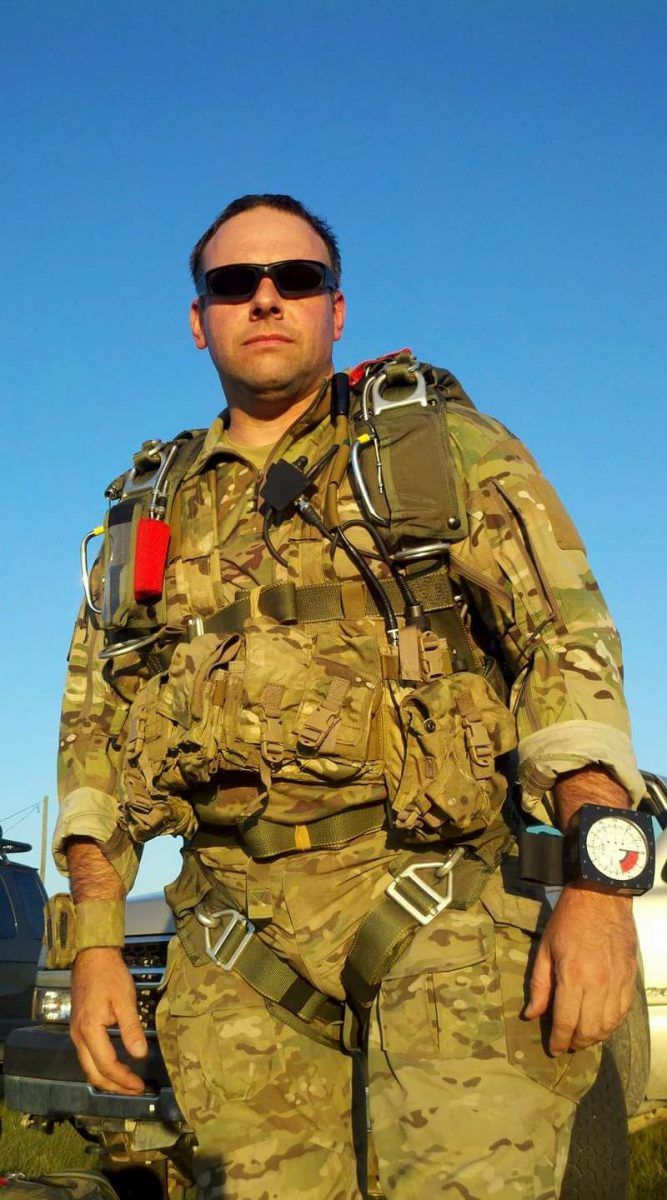
Acquisition Background and Bridging the Gap
I then really got deep in the material acquisition side of my job. I became a Defense Acquisition University School-trained Combat Developer as well as a Human Factor Engineer SME. It’s a course called MANPRINT, and it’s all about the man-machine interface and building things for the 90th percentile of soldiers.
As an example, MANPRINT is how you get a tank that has a hatch that isn’t so small that the tankers can’t get down inside the hatch. It impacts all aspects of DOD acquisition. So, I got some formalized schooling on how the military buys stuff, how they test stuff…and that really helped me out for the rest of my career.
I was able to generate requirements to get new stuff…and I was able to articulate it because I had learned acquisition people’s language. Instead of “grunt need rifle. Rifle must bang”…I could properly lay out what I wanted a rifle to do, or why I did not want the rifle to be a bullpup or all these other things. I was able to “bridge that gap” and there are very few gunslingers or end-users that have that acquisition flavor to their resume.
Most people that go into the acquisition community…it’s because they’re broke or they reclassed, and they never come back out into the operational world. Being able to bounce back-and-forth between being the R&D guy at the Ranger Battalion, followed by being a Platoon Sergeant, and then into science & technology, followed by being an advisor at the Asymmetric Warfare Group (AWG) …that kind of back-and-forth for the second half of my career gave me a really well-rounded background that has helped me out now that I am doing the
Q: You mention AWG, can you talk about your time there and then what came after that led you to then start consulting?
Chuck Pressburg: I left USASOC and went over to AWG, where I was a founding member. I worked over at AWG for a few years, almost all of it downrange. I had almost 20 months downrange with AWG. Then I went to United States Army Special Operations Command (USASOC) again in a different capacity…and I did my last 10 years at USASOC and did duties as necessary for the command in both an operational and in an acquisition capacity. So, that’s my 26 and a half years in the Army in a nutshell.
Chuck Pressburg on the Beginnings of Presscheck Consulting
Chuck Pressburg: So I got out and I wanted to open up a consulting business. I wanted to do material development with vendors. That was one of the things that I really enjoyed about my job, which was sitting in a room with an engineer or a product designer and explaining to that guy when I’m looking at his CAD drawings why his decision to put certain knobs, buttons or whatever is inappropriate, and it is inappropriate based off of assumptions that he has made.
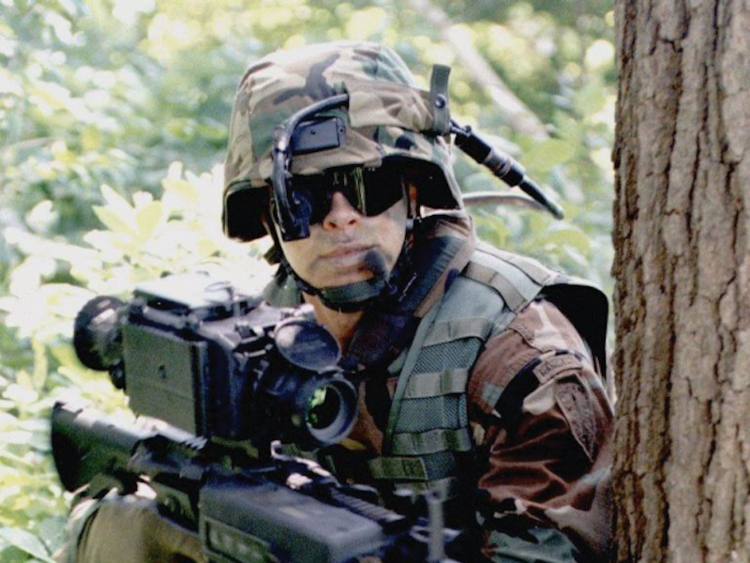
There were people out there that were making gear for all of us that were so smart they were stupid, and they needed a reality check to how their stuff actually was being used by human beings.
Q: Any practical examples you can give of this kind of thing?
Chuck Pressburg: A practical example of that in the commercial industry is mag well grip stuff for an AR. People are making devices or are molding AR lowers that have a grip on
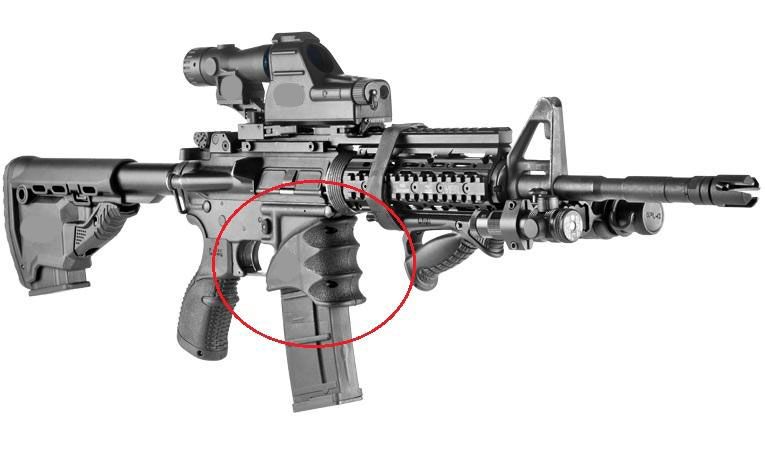
Somebody else out there that isn’t necessarily bigger or stronger than you are is more efficiently holding their rifle. Because of that, they are going to have it shoot faster and flatter than what you are doing.
So, is it an example of “people don’t know what they don’t know?” or are they just marketing and selling equipment to the bottom-feeder? I don’t know and I don’t care. As a consultant, I am looking for companies that are trying to get it right, and they want to sit down and have a very candid conversation about what their gadget is, and how that gadget is going to perform when employed by the end user.
Q: In addition to being a high-level consultant, you also spend a lot of time training. Can you talk about juggling both into your schedule?
Chuck Pressburg: I wanted to train. I really like it. I’ve had a lot of personal struggles in my life transitioning from becoming a career soldier, where it kind of defined my being. It was who I was and my sense of value to myself as a human being was tied to my work.
Well, when I left my work, I lost my sense of self. So, I have had to find a new mountain to climb…A new peak to go to. When you’re an astronaut and you go up in space and you come back…how do you beat that?
Well, apparently some of them run for Congress. They have to find a new thing. So, my new thing is giving back to the professional community: first responders, cops, armed citizens…whoever has a true desire for knowledge.

Q: I know you have a large interest in night vision and electro-optics. Can you speak a bit on that side of your training of ferings.
Chuck Pressburg: So, I train now. As a part of that training, I am very heavy into night vision, electro-optics sectors of the training market, due to my personal involvement in a lot of the legacy night vision and laser systems that are out there. I was there…in the room. I was in those discussions when they were taking place, and I can tell you the “why” behind all of this stuff.
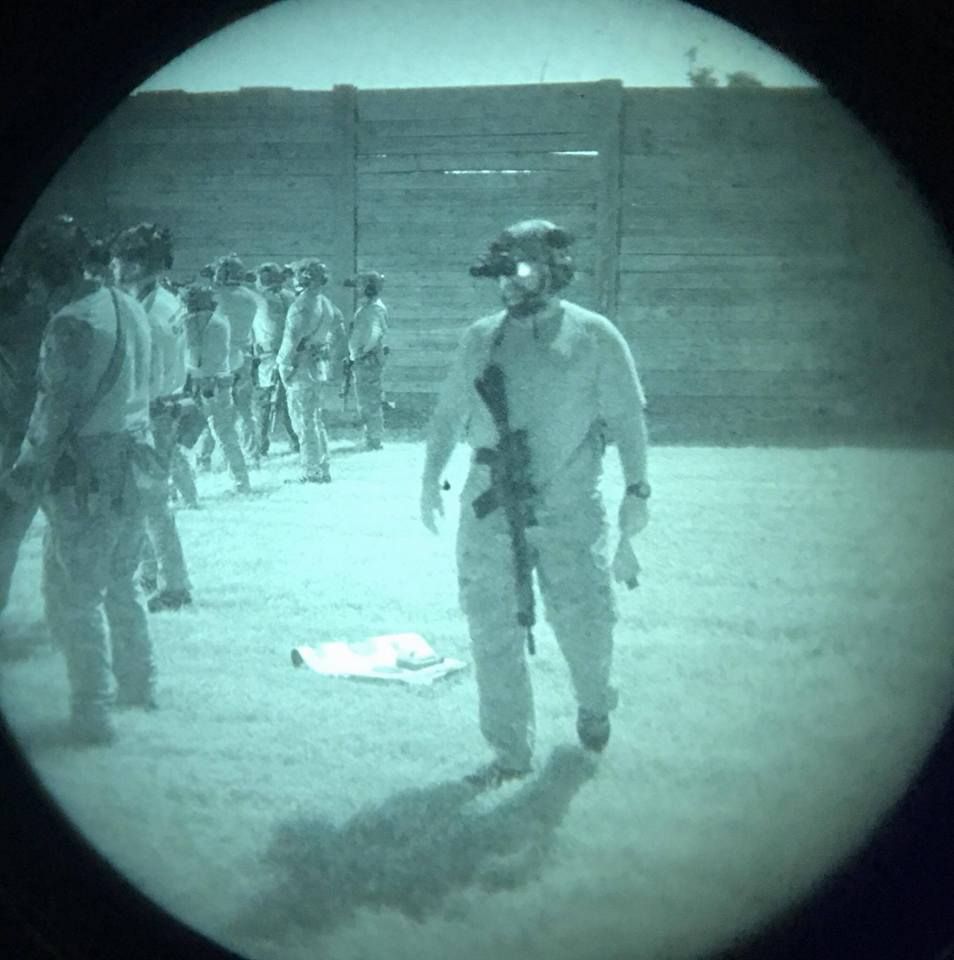
So my “acquisition-nerdy-
My classes kind of pop up late. I’m not nearly the businessman that I am the gunfighter. I’m hoping to rectify that in 2019.
You have to avoid the gimmicks, but how do you avoid the gimmicks if you can’t separate little known, but potentially very viable mechanical advantages from trash in a sea of Haterade?
Chuck Pressburg
Q: Can you talk about any trends you’ve noticed since you’ve started consulting?
Chuck Pressburg: As a reader, you might hate me based on where your frame of reference is in how I answer this question. I am actually seeing a hardware backlash coming from people…your modern, educated “EDC dude.”
“If you’re not rocking a Glock 19 stock, with some Warren or 10-8 or Proctor sights on it, you’re a douche because that’s all you need.”
So there is this anti-
But in the top 20-percent, high-end, snobby, whatever-you-want-to-call-it portion of this industry, that’s the new edgy, cool thing….to shit on any mechanical advantage…anything that looks “high-speed.” People went full blown off-the-reservation, so now anything that is potentially viable is frowned on. And so, that is dangerous because it’s going to stifle ingenuity.
Chuck Pressburg on Other People’s Solutions…
Chuck Pressburg: But as a general rule for me, you have to know what your skillset is, and you have to know where you’re trying to get, and you have to know what mechanical advantage, if any, the accessory you’re choosing is going to provide for you. And you need to have data points that prove that.
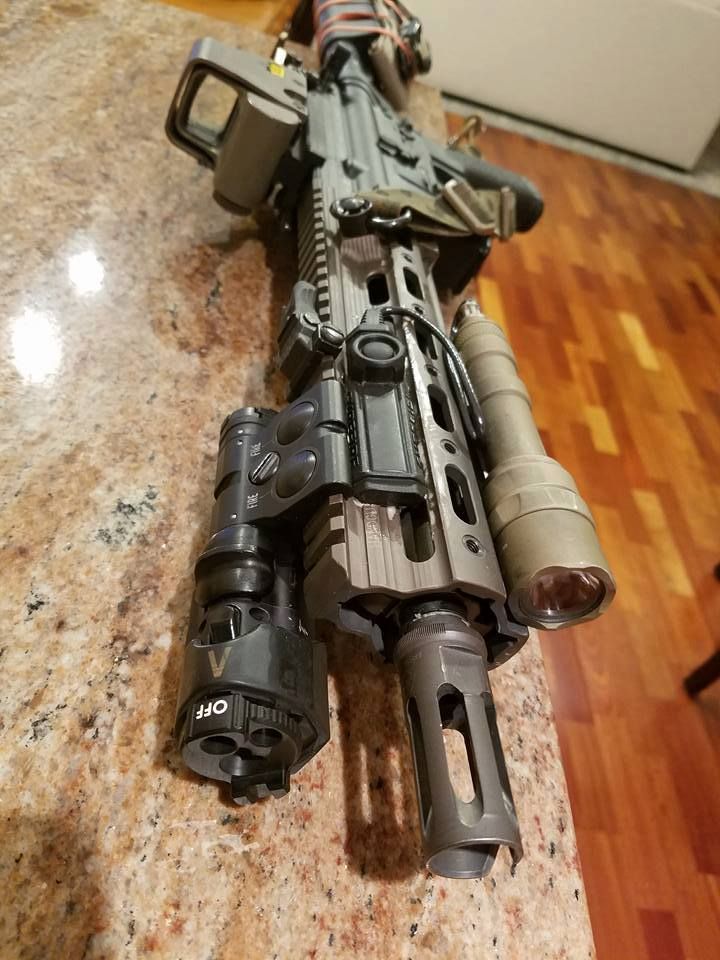
You can’t take other people’s solutions and apply them to your problems if your problem isn’t similar to their problem.
You need to know the “why” of “why anyone is making this stuff?” And, you need to know why they are doing it.
And if his situation doesn’t meet yours, then you might want to acknowledge his might work for him, but his advice might not work for you…and go find some advice that works for you.
A Sea of Haterade
Chuck Pressburg: You also have to avoid the gimmicks, but how do you avoid the gimmicks if you can’t separate little known, but potentially very viable mechanical advantages from trash in a sea of Haterade?
If everyone is hating on everything, how the heck can you, as the consumer, figure out if people are hating on a viable thing, versus people hating on a gimmick? It makes it very tough for you guys.
Q: It sounds like a difficult task. Are there any ways , as consumers, we can safeguard ourselves from gimmicks?
Chuck Pressburg: As a general rule, money can help dictate whether you are buying a gimmick or whether you are buying quality. “Gimmick guys” are going to try to cut the price of their product because they know their item’s capability cannot rest on its own.
“Quality dudes” are spending money behind-the-scenes in man-hours doing stuff to that product to make sure that the product is assembled properly and that the parts work, and that quality control has occurred.
$400 vs $3,000
Chuck Pressburg: Let’s take an AR-15….when we ask “what’s the difference between a $3,000 AR-15 and a $400 dollar AR-15?”… the answer is “a lot.” There’s a lot different.
This is one of those times that I don’t have all of the technical data points. When it comes to firearms and technical craftsmanship of material design, what is the difference between Lithium Aluminum and 7075…I don’t know. I’ve done some research but I’m not an SME (subject matter expert). I can’t go point-by-point why certain weapons systems are better, but I do know people who are insanely smart when it comes to firearms. They all generally share the same opinions about the higher end ARs like Knight’s and Hodge that are available on the market.
A company like Knights doing their own thing, they understand the problems. To help solve extraction issues, what did they do? They put two springs in the bolt…because they understood the problem. The downside is, you have some proprietary stuff now, but I don’t think you’re ever going to see an extraction problem with those weapons.
Q: I know you are a fan of the Hodge Defense guns that are out there…Can you talk a bit about those?
Chuck Pressburg: The Hodge guns…they are built to a different spec than everybody else’s stuff. They are built to Hodge’s specs and (Jim) Hodge has learned a thing or two about fitting parts together. He orders his parts “off.” Kind of like parts manufacturers
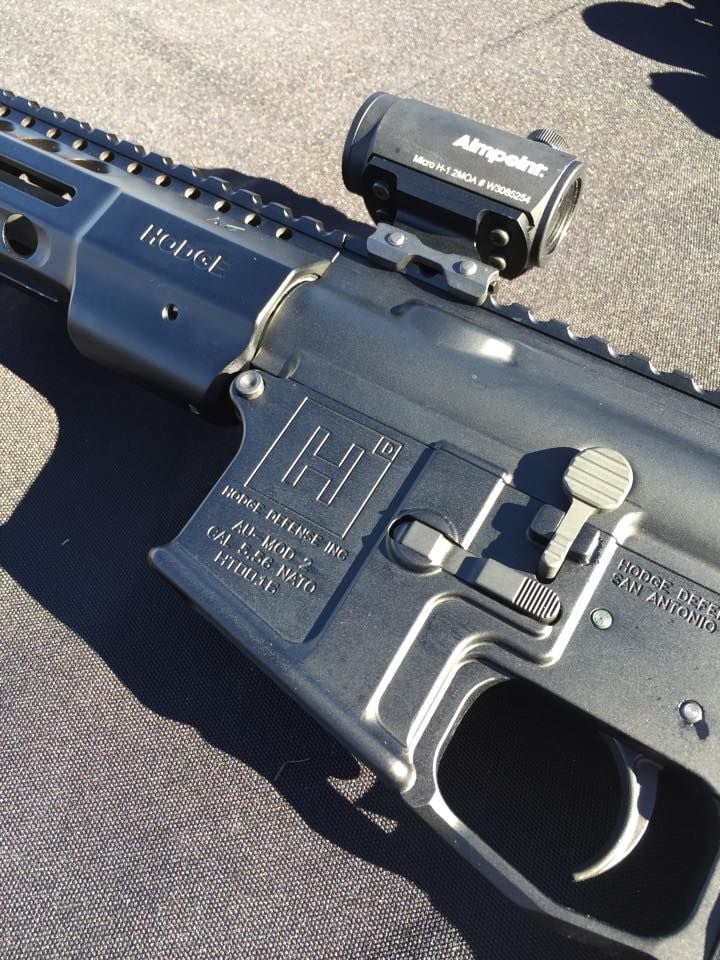
He’s hand-fitting components together and removing some of the extra material that he’s had them make to his specification…and so the lockup and the tightness of how these parts interface…and how that transfers over to accuracy…it is absolutely amazing.
Chuck Pressburg on Avoiding the Corner Cutter
Chuck Pressburg: So yeah, you want a manufacturer who gets the best parts, not cheap parts where the end user doesn’t know or doesn’t care…and then builds the rifle together that looks good, throws some “sexy” Cerakote on it and sells it for a higher amount. That’s what a lot of boutique custom AR companies do. They’re trying to cut corners on parts that are being used on these ARs.
If you’re having to pay and then remove junk off your rifle to put other junk on it, you’re wasting your own money. If you have to customize the gun after you get it, you’re wasting cash. You shouldn’t have bought those parts in the first place. I am 100% supportive of all of the Hodge weapons, and the entire line of Knight’s Armament guns…no issues or complaints on those whatsoever. I love them.
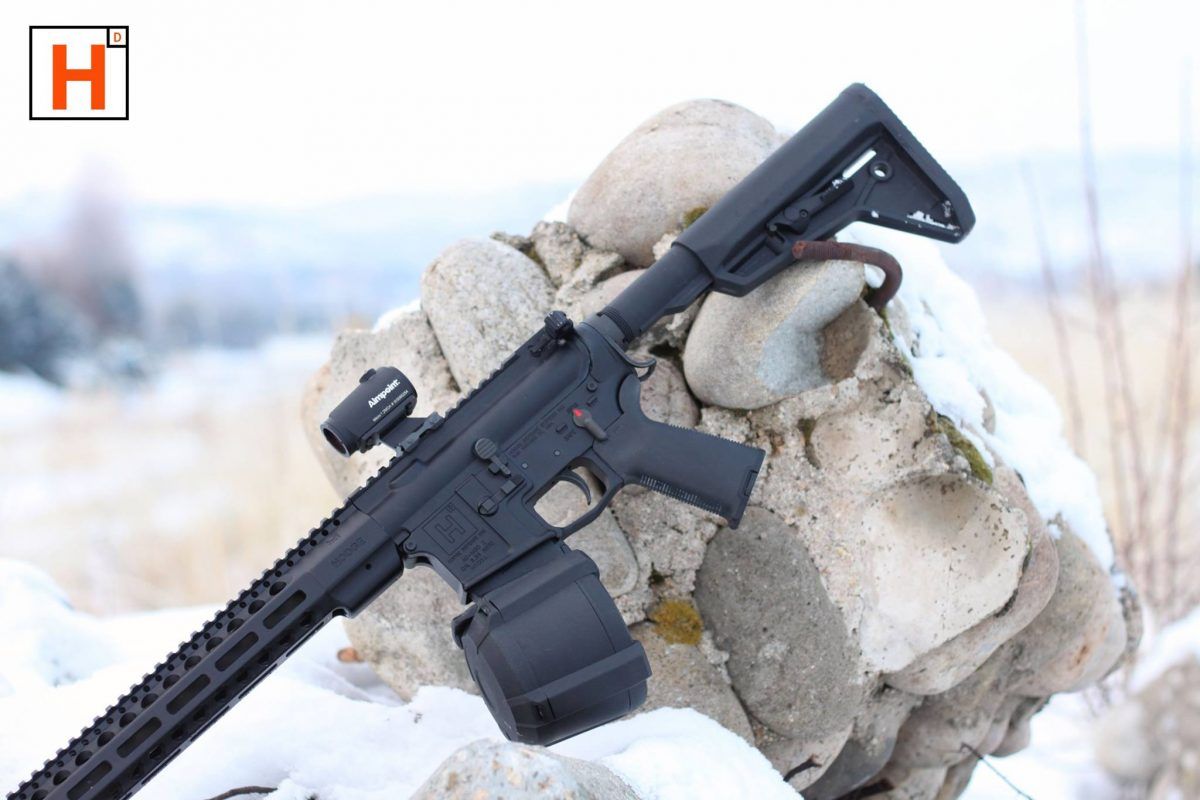
If you own an AR-15, you have taken your life back. You have the ability to protect yourself and your family and it is a critical part of our culture of self-reliance and individual responsibility.
Chuck Pressburg
Q: When you take a look at the AR-15 as a whole, it’s something you have spent a lot of your career with. What’s your overall impression of the firearm as it exists in late 2018/2019?
Chuck Pressburg: I’m a huge fan of the AR-15 platform. If I could only have two guns, it would be a Glock 19 and an AR-15. From an ergonomics standpoint,
If you own an AR-15, you have taken your life back. You have the ability to protect yourself and your family and it is a critical part of our culture of self-reliance and individual responsibility. An AR-15 is becoming a symbol of statism versus individual freedom. Respect it. Love it. Embrace it.
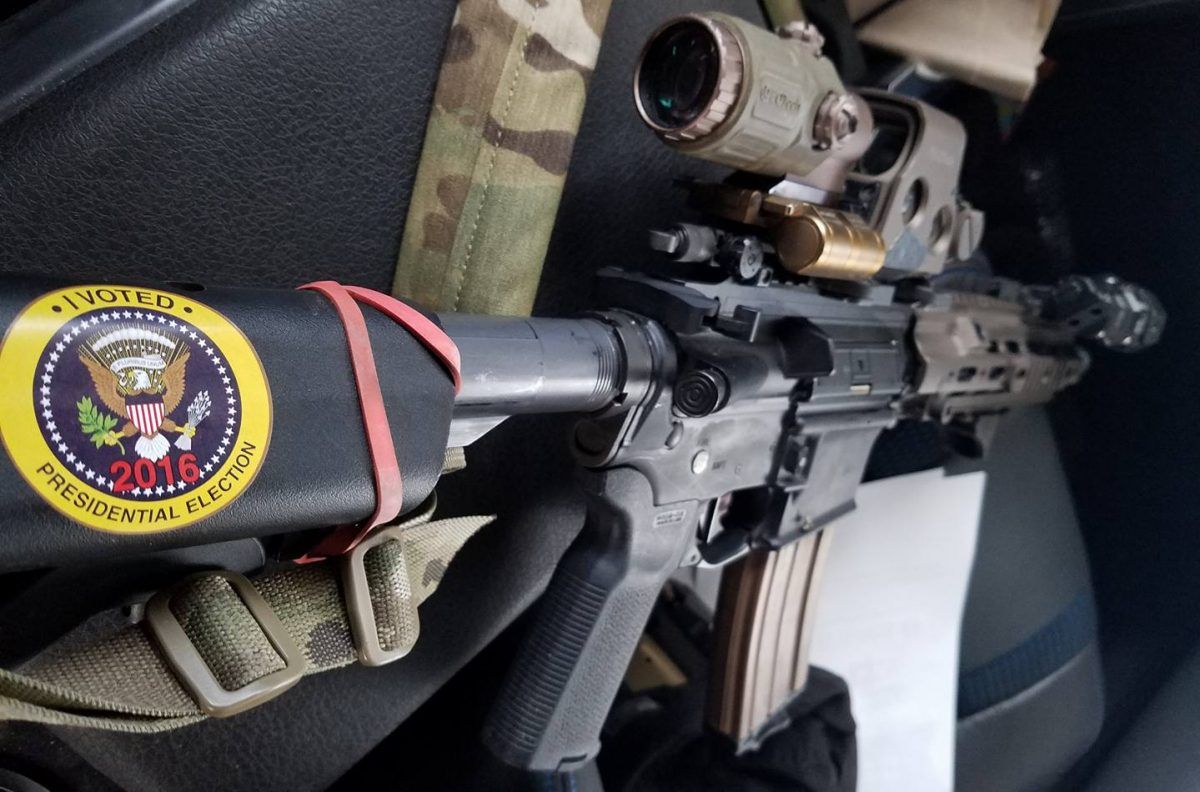
The AR-15 is an amazing platform. I thank my Higher
###
Tremendous thanks to Chuck Pressburg of
